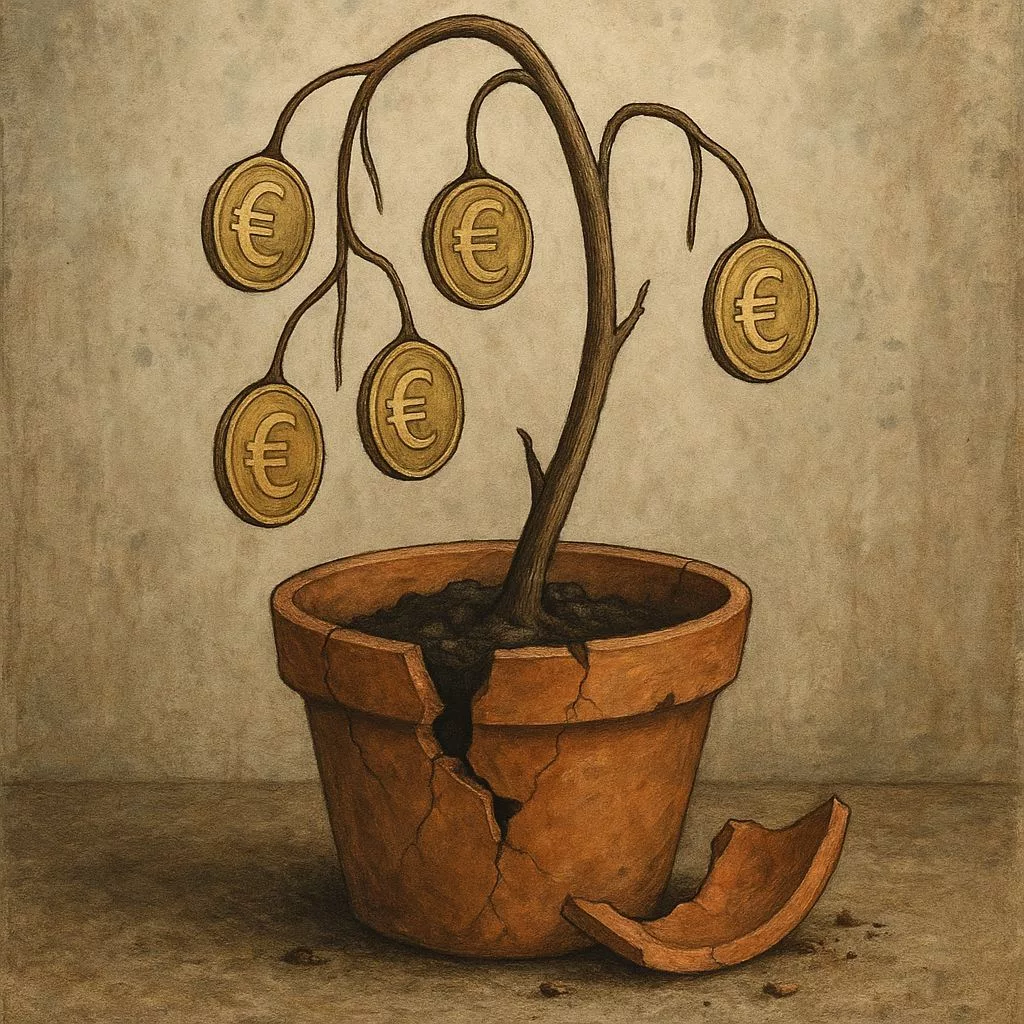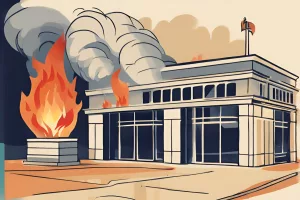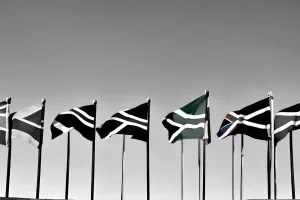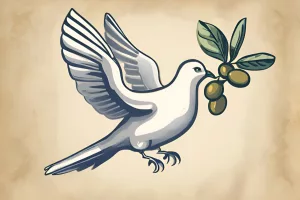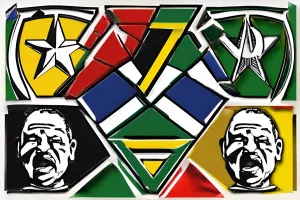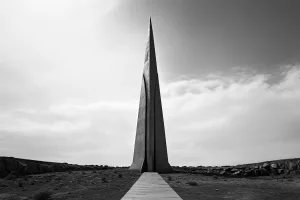The ANC, once a powerful liberation giant, is now struggling to pay its employees. Its bank account is empty, leaving staff without salaries for months. This is happening because fewer people are paying membership fees, and the party has a lot of debt and unexpected legal bills. Even though employees are hurting, the ANC is finding it hard to get money, making payday a scary ghost story for many.
Cyril Ramaphosa, the President of South Africa, has boldly declared that his party, the African National Congress (ANC), will not let businesses dictate government decisions. He insists that all choices will be made for the people, not for wealthy business leaders. This strong statement comes after business figures expressed worries about political tensions, especially concerning a coalition government. Ramaphosa’s commitment to the people’s needs shows the ANC’s dedication to democratic values, promising to stand firm amid challenges and ensure the government serves its citizens first. As the ANC navigates these tough times, eyes are on them to see how they uphold their promises.
South Africa’s journey after apartheid began with hope, shining brightly with Nelson Mandela’s leadership and the rise of the ANC. However, challenges like corruption, especially during Jacob Zuma’s time as president, have darkened that bright path. Mac Maharaj, a key voice in the antiapartheid movement, warns that the country needs to focus on rebuilding trust and accountability within the ANC. He urges young people to take charge and help shape a better future, reminding everyone that the past’s lessons are crucial for a brighter tomorrow. The heart of South Africa’s story is about facing challenges headon and dreaming of a united and just nation.
The alleged bribery attempt and political discord in South Africa’s Swellendam Municipality could significantly upset the power dynamics as the ruling Democratic Alliance (DA) faces accusations of attempting to bribe an African National Congress councillor to resign and trigger a byelection that would be in their favour. The DA and Freedom Front Plus deny the allegations, while the ANC is preparing a vote of no confidence against the existing authority to establish a new coalition with the FF Plus.
The African National Congress (ANC) is holding a virtual disciplinary proceeding against expresident Jacob Zuma for breaching party rules, marking a significant juncture in South Africa’s political scene. The hearing was moved online due to safety concerns, and Zuma’s endorsement of a rival party has created tension within the ANC. The outcome of the hearing will have broader implications for the future trajectory of the ANC and the evolution of South Africa’s political landscape.
South Africa’s politics is changing as the ANC’s support declines and a Government of National Unity (GNU) is formed with the DA and other political groups. However, tension between the ANC and DA is growing, as the DA demands control over crucial government departments and the termination of contracts of director generals. This has led to criticism from the ANC and a potentially rocky road for political transition. The path forward requires tolerance, accommodation, and respect for the country’s Constitution to establish a truly inclusive, efficient, and representative GNU.
The ANC and DA are locked in a power struggle for control of key positions in South Africa’s Government of National Unity, including the deputy presidency and major economic departments. The DA has presented several demands, including ten ministerial portfolios, and is unwilling to compromise. The potential delay in forming the GNU Cabinet highlights the difficulties in building an effective government and underscores the constantly evolving landscape of South Africa’s political arena.
South Africa’s African National Congress (ANC) has assembled a team to lead the party through the uncharted waters of coalition negotiations following its historic election upset, which resulted in the weakest vote count for 30 years. The team is led by Fikile Mbalula and includes Gwede Mantashe, Nomvula Mokonyane, Maropane Ramokgopa, and Gwen Ramokgopa. The Democratic Alliance has also assembled a team led by Tony Leon and Helen Zille in preparations for the upcoming fiveyear tenure. The parties will need to engage in pragmatic and strategic negotiations to shape South Africa’s political future.
The Jacob Zumaled uMkhonto weSizwe Party, or MK Party, has risen to prominence in South Africa’s political scene with over two million votes and becoming the third largest political party. Their impressive performance in the recent elections has carved out new political possibilities and given them a unique place of power. The ANC’s decline in support has compelled them to seek coalition partners, adding further significance to the MK Party’s rise. This fresh political dynamic holds promising prospects for the future of South Africa’s democracy and its citizens.
South Africa’s fight against racial prejudice and apartheid has had a significant impact on the postapartheid landscape of the country. The African National Congress, which led the fight, was founded in 1912 and welcomed people from all walks of life. Their legacy includes advocating for equal human rights, both locally and globally, and influencing South Africa’s approach to international relations. South Africa’s support for international law contrasts with the ongoing struggle for a sovereign Palestinian state, where Palestinians are denied basic human rights and selfdetermination.
These resignations highlight a growing sense of dissatisfaction among senior members, leading to increased questioning of the party’s current direction. Two prominent figures, Dr Kgosi Letlape and Nathi Nhleko, have resigned from the African National Congress (ANC) due to ideological differences and perceived shortcomings within the party. Dr Letlape was critical of the party’s new National Health Insurance policy, which he believed was merely a new avenue for siphoning off public funds. Nhleko cited the party’s failures and his disappointment in witnessing the suffering caused by the ANC’s governance.
Jacob Zuma, former South African President, has been expelled from the African National Congress (ANC), the political party he once led. Zuma’s endorsement of a competing party has stirred up the political scene ahead of the general elections in South Africa, and his expulsion marks a significant change in the nation’s political dynamics. Despite facing frequent accusations of corruption during his presidency, Zuma’s popularity remains robust, with nearly a third of South Africans expressing approval for him, particularly in his native province of KwaZuluNatal, a pivotal electoral district.
Dramatic Shift in South Africa’s Political Scene: Former President Jacob Zuma Departs from ANC
Former South African President Jacob Zuma has left the African National Congress (ANC) in a surprising move. The ANC had shown unwavering support for Zuma, but his departure may have been spurred by resentment towards current President Cyril Ramaphosa and the ANC’s shift away from prioritizing his personal interests. Some political analysts have criticized the ANC’s lack of internal disciplinary action and the potential damage to the party’s reputation. Zuma’s exit marks a significant moment in South Africa’s political history.
In South Africa, the Mbombela Stadium is set to host the African National Congress’ anniversary celebration, symbolizing national unity. ANC President Cyril Ramaphosa will lead the event, discussing the importance of economic stability. Social media platforms are buzzing with excitement, highlighting the country’s democratic vitality. The event requires logistical and organizational expertise and marks the party’s readiness to tackle adversity. Spectators will carry the nation’s dreams and ambitions with them, making the event a moment of reflection, celebration, and renewed resolve.
The use of Umkhonto weSizwe’s symbolism in South African politics has become a hotly debated topic, with the emergence of a new political party using the group’s name. Umkhonto weSizwe, founded by Nelson Mandela, represented a shift in strategy from peaceful protests to armed resistance against apartheid. The debate around this topic highlights the diverse viewpoints that make up South African political discourse, reflecting the impact of historical struggles on potential political scenarios.
Former South African president Jacob Zuma has surprised the nation by withdrawing his support for the African National Congress (ANC) and hinting at backing a new political faction in the upcoming general election. Zuma’s legacy has been marred by scandals, including the misuse of state funds to improve his private residence, leading to his resignation in 2018. The ANC is facing internal discord and accusations of corruption, and the emergence of alternative political factions threatens its historical dominance, sparking a heated debate on social media. The upcoming elections may usher in a new era for South Africa, where the ANC’s legacy and founding principles are subject to scrutiny.

